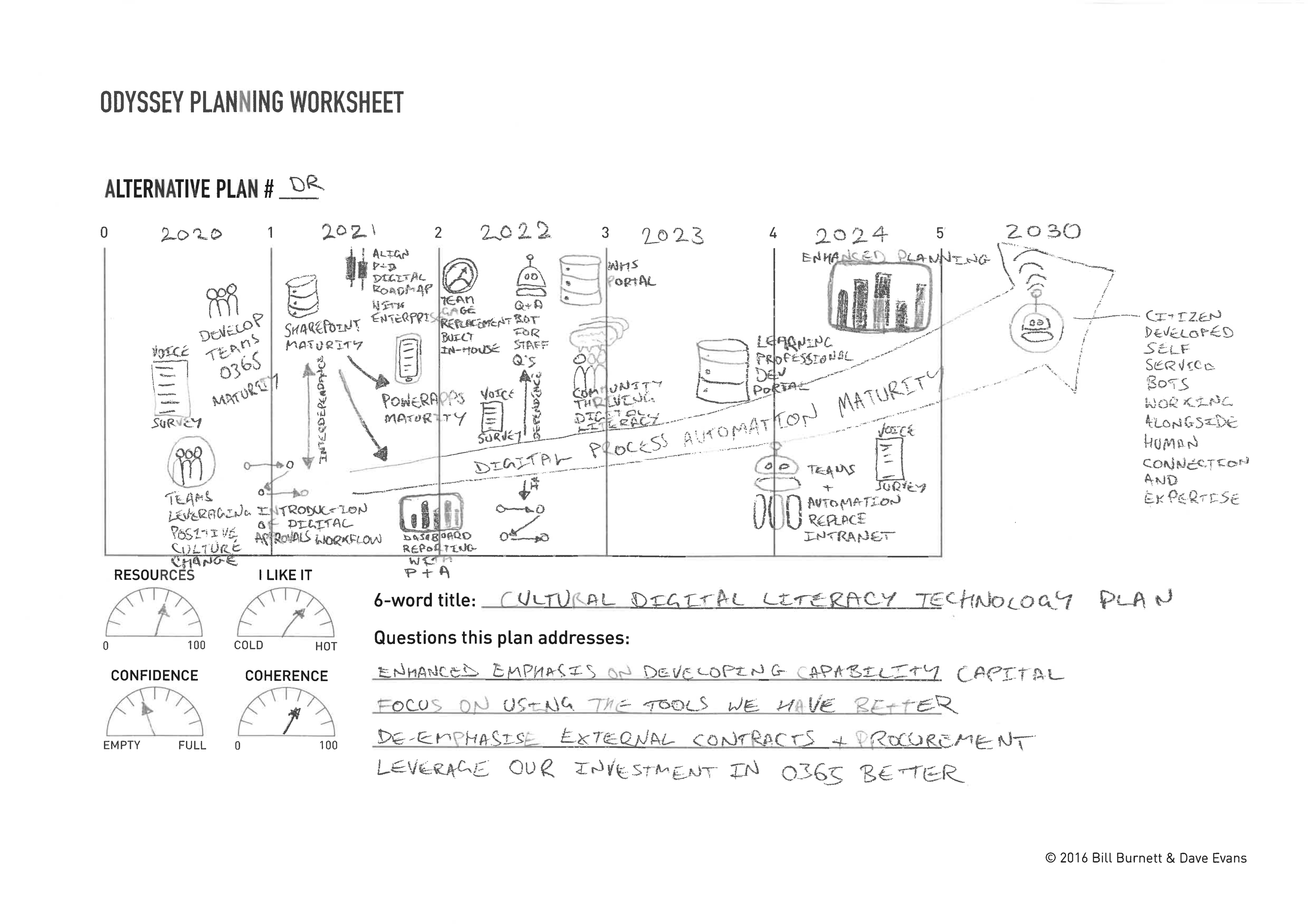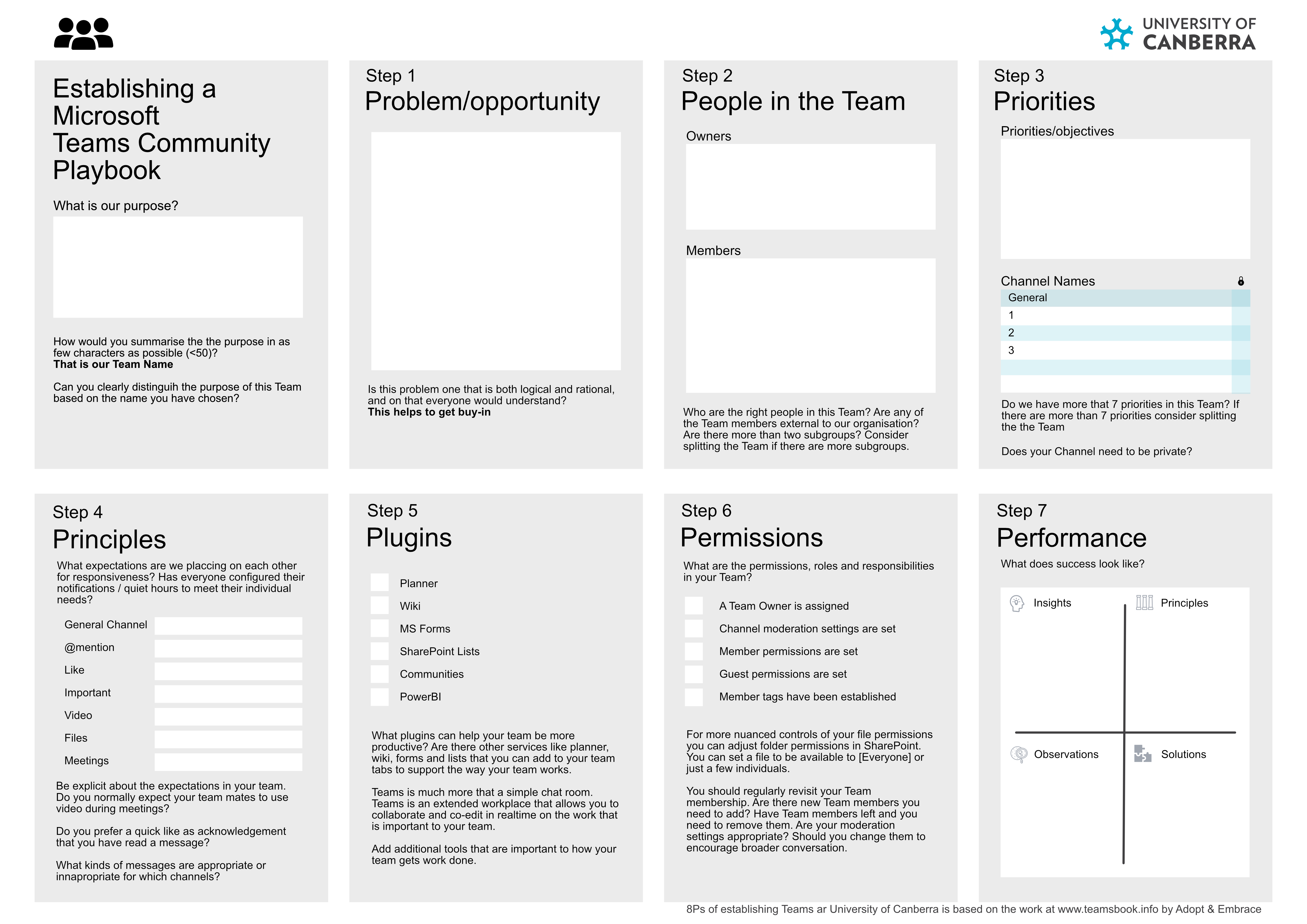Improving digital agility in higher education
Challenge
In an increasingly competitive higher education environment and with the need to improve organisational collaboration and build cross-disciplinary networks, digital agility is necessary to support organisational values.
Organisational governance is also required to support standards and create a level playing field for people to develop digital agility on a commonly understood platform.
Universities have a wide diversity of digital collaboration tools, with some areas of highly mature digital records capability and others whose records focused on the filing compactus.
Even among the mature digital proponents in higher education, there is significant diversity in digital record-keeping and collaboration. Some people use Google Drive, Dropbox, the VPN and a confusing array of share drives and folders as well as SharePoint. And to collaborate, people use Trello, Slack, Monday, Asana and Jira; to name only a few. Not to mention the confusion around Microsoft tools.
Team meetings and chats is fine, but business emails should be business emails! And if we need to send business emails let's just keep our work in Outlook, otherwise there is too many channels to track.
The great diversity of collaboration tools presents challenges for standardising collaboration and knowledge management, it makes it difficult for organisations to support users, presents risks to intellectual property and creates legal and privacy risks.
Expertise provided
Community management | Strategic design | Agile support | Digital transformation | Digital agility
Outcome
To address the knowledge management and collaboration challenges. I supported the university community to co-create collaborative communication principles. These principles instructed the university community on the hierarchy of collaborative tools and helped people understand which tools had what purpose. It clearly defined, supported and endorsed Microsoft O365 tools and made it clear that third-party tools create IP, governance and data sovereignty risks.
To enable the digital agility strategy, I drove the establishment of an O365 governance board. The board, created from IT experts and operational business leaders, helped IT administer and architect O365 in ways that supported organisational values and business needs.E

I worked with organisational units and teams to migrate from their non-compliant collaboration tools to the universities O365 ecosystem and trained people to use Microsoft Teams and SharePoint. I created communities of practice devoted to supporting citizen developers around Teams, PowerAutomate, SharePoint and PowerBI.

I created a collaboration and change strategy that focussed on Teams collaboration first and migrated internal communication into the agile Teams environment. But importantly, the strategy focussed on people and values first. Moving to Teams wasn't about tools or technology. It was about enabling organisational values:
- Integrity - University of Canberra people hold themselves to the highest standards of ethics, integrity and accountability in all that they do.
- Collaboration - University of Canberra people work cohesively and collaboratively, a cornerstone of any successful academic institution.
- Inclusion - The University of Canberra, as an institution of higher learning, demonstrates its commitment to equity, diversity and social justice through its actions.
- Innovation - The University of Canberra encourages creative, innovative and applied thinking. From research impact to daily decision-making, innovation is essential in a competitive environment.
- Entrepreneurship - University of Canberra people are committed to excellence in all their professional and academic endeavours. In our market-driven environment, this means turning great ideas into action to take advantage of market opportunities.
The strategy also focused on the rituals and traditions that support digital collaboration. I delivered training in agile rituals, developing personal user manuals, setting objectives and key results and dependency mapping.
This program was well underway in March 2020 when COVID-19 became an unavoidable factor in campus life. Fortunately, the University of Canberra was well placed through its digital agility program to mobilise its people and its educational delivery to an isolated working from home model. Daily virtual stand-ups became the norm across the university, and visual management of work using MS Planner increased dramatically. Communities of practice shared PowerAutomate tips and tricks, and SharePoint lists and document libraries supported simple collaboration on content.

The O365 governance board continues to function well to support the university and make the most of its O365 assets. It has become increasingly important as the velocity of Microsoft updates increases faster than IT support can manage the pace of change. A community of self-support and peer support is essential to managing the pace of O365 change. The combined business/IT O365 governance board is necessary to support the community with guidelines and best practices and to ensure that while the community is empowered with freedom, organisational security and knowledge management best practices are being maintained effectively.

